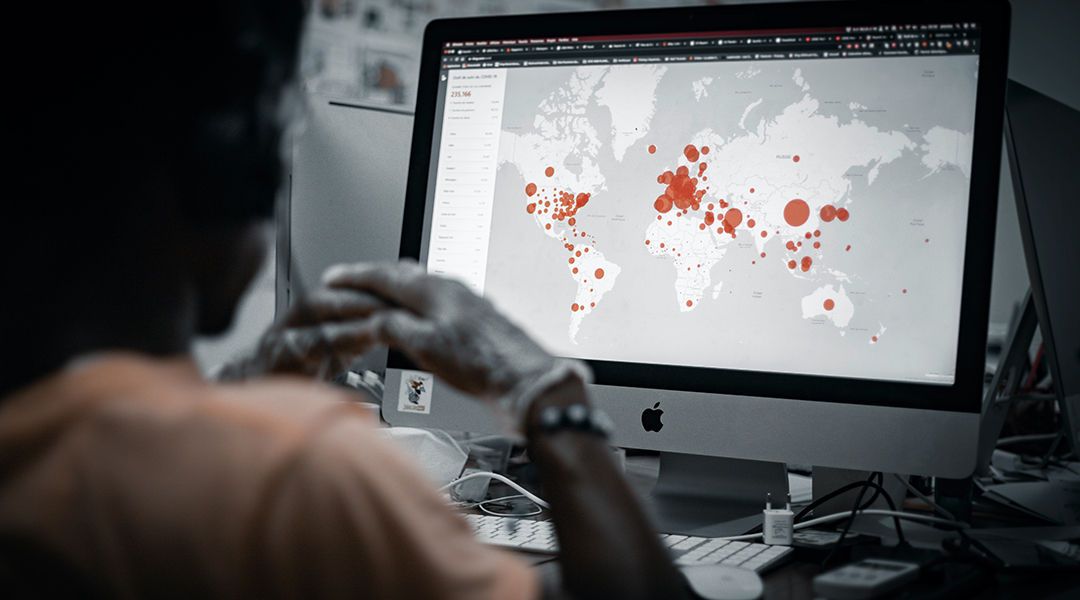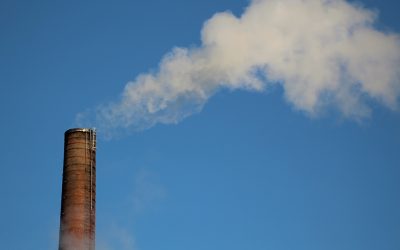Image credit: Patrick Assalé Unsplash
The COVID-19 pandemic is a crisis of global proportions, albeit with the health and social impacts, government responses, and public impacts differing both across and within countries. In the short term, these relate to the number of cases diagnosed, the number of hospitalizations recorded, and the mortality rate. In the medium to long term, it is likely that there will be differing, and perhaps unforeseeable, economic consequences resulting from the disruptions to global supply chains, markets, and high numbers of people losing their jobs. Each of these cases point strongly to the fact that COVID-19 is much more than just a medical problem but is in fact — as those of us who study climate change will be familiar with — a much more complex social problem. This will require social (scientific) knowledge to provide a full picture of the impact and nature of the pandemic, its enduring effects and the options available to them to mitigate long-term harm.
Crises, by their very nature, require decisive intervention. The necessity and urgency of providing an immediate response, however, can obscure vital social and contextual questions. Principal of these questions should be how and why does this event in particular constitute a crisis and necessitate intervention? It is noticeable, in this instance, that COVID-19 appeared to place all countries of the world at immediate and tangible risk (despite what some world leaders claimed) while in climate change both the risks and capacity for adaptation and mitigation are not spread evenly across the globe. This may account for the differing recognition of “crisis” and different intensity of response by governments.
Other questions these events bring into focus include: What is the nature of the crisis? How it is defined, and by whom? What forms of knowledge are deemed legitimate and authoritative for informing interventions? As long as governments and scientists present the pandemic as something external, happening to rather than within our societies, then the fear is that (technical) knowledge will be sought that simply treats the symptoms rather than the underlying causes that have made our societies unequally vulnerable to risk.
There is a demand from both governments and publics for immediate answers and solutions during periods of radical uncertainty, and experts will be sought to answer these questions as best they can. What measures are necessary, possible, or even desirable to mitigate the crisis requires much more than technical-scientific knowledge, particularly if the measures are to be both effective and legitimate. Looking to the current pandemic, we see that the ability to effectively lockdown and quarantine populations requires capacity for enforcement and trust in institutions. Equally, there is a recognition that the capacity to isolate or tele-work is not spread equally across societies, with already vulnerable groups asked to shoulder additional risks. Effective solutions, therefore, need to start from point of recognizing social inequality and require social knowledge.
What is often obscured by the impulse towards technical solutions is the contingent, conjunctural, and ultimately social nature of these crises. Unemployment resulting from the lockdowns has, for example, been much higher in liberalized economies with weaker institutions of collective bargaining. In the case of climate change, on the other hand, more political energy has been expended searching for technical or market-led solutions such as carbon taxes or carbon capture than in challenging current patterns of production and consumption. The danger here is that by focussing on immediate technical goals such as flattening the curve or keeping global temperature rises below 1.5 degrees, unanticipated secondary effects, such as increased mental health problems in less socially and economically resilient populations, are produced which either exacerbate the existing crisis or else produce further crises later.
Another significant risk in producing technical goals is that they create incentives for “gaming the system” whereby governments manipulate data to achieve public targets, as was seen in the UK government’s commitments to testing, and which ultimately leads to increased public scepticism of expertise. These risks underscore the importance of broadening — and thus strengthening — the knowledge base, not least by including social scientific knowledge. In doing so it is likely that the problems we face appear more complex but ultimately the solutions arrived at will address the causes not just the symptoms of the crisis.
Reference: Mike Hulme, Rolf Lidskog, James M. White, Adam Standring. ‘Social scientific knowledge in times of crisis: What climate change can learn from coronavirus (and vice versa).’ WIREs Climate Change (2020). DOI: 10.1002/wcc.656

















